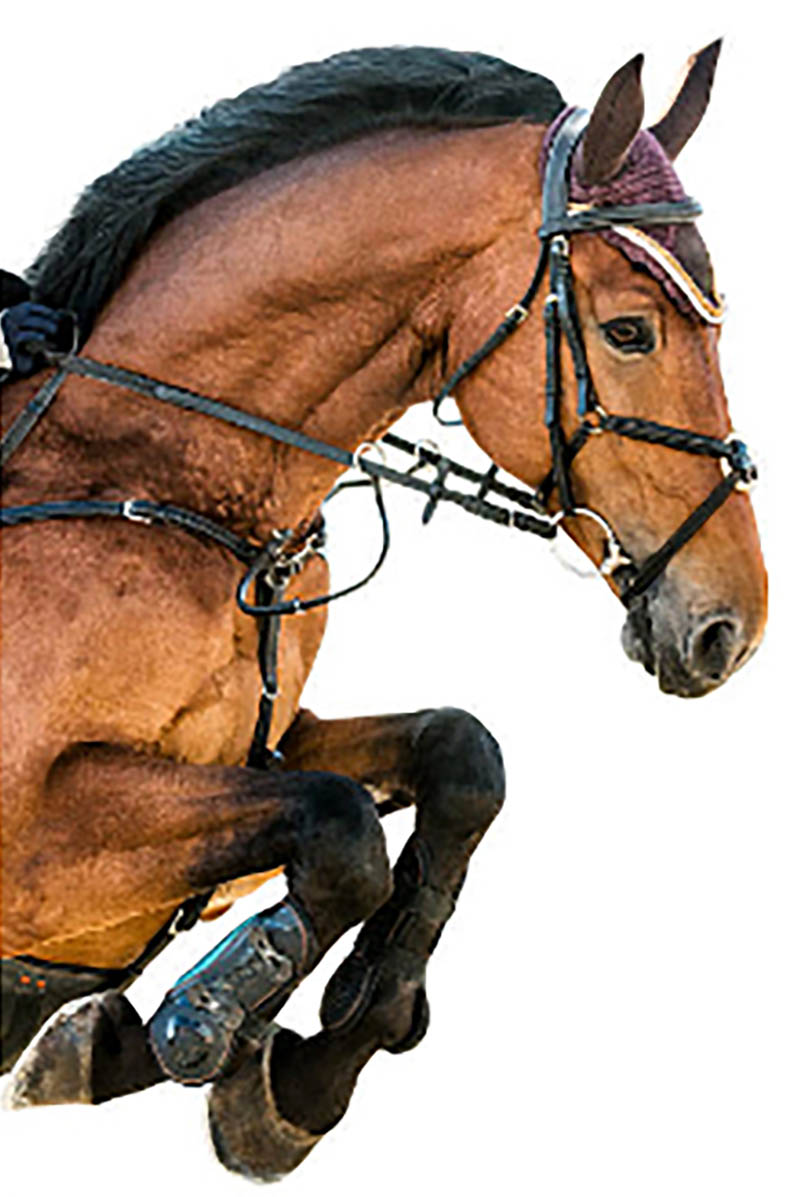
Nutritional Supplementation
of the Ration in the Horse
A Strategic Approach
to Optimize Health and Performance
Nutrition is crucial for the horse health, well-being, and performance. While a diet based on high-quality forage and balanced feed can meet most nutritional needs, in certain circumstances, targeted nutritional supplementation can offer significant benefits, supporting specific physiological needs and improving training response.
Benefits of Dietary Supplementation in Horses:
- Regarding Specific Life Stages and Physiological Conditions:
- Growing foals: Supplementation with minerals such as calcium, phosphorus and copper, and vitamins such as D and E, can support healthy growth and fill deficiencies that could compromise future development (Ott et al., 1984)..
- Pregnant and lactating mares: Nutritional requirements increase significantly during gestation and lactation. Supplements containing B vitamins, vitamin E, and essential fatty acids can support the well-being of the mare and foal (NRC, 2007)..
- Older horses: With aging, digestive efficiency may decrease. Supplements with prebiotics, probiotics, and digestive enzymes can improve nutrient absorption and support intestinal health (Glade, 2003).
- Athletic Performance:
- Proper nutritional supplementation effectively supports various physiological needs. Supplements containing essential amino acids (lysine, methionine, threonine), creatine, and vitamin E can promote muscle development and efficiency, improving strength and endurance (Harris et al., 1999).
- Supplementation with complex carbohydrates and added fats (such as rice bran or linseed oil) can provide a sustained energy source and help protect against oxidative stress induced by intense exercise (Williams et al., 2004).
- Another important element in the diet are electrolytes (sodium, potassium, chloride), whose intake through the ration is essential to replace losses due to sweating. Specific supplements assist and can promote recovery and help reduce dehydration and electrolyte imbalances (Lindinger, 2000).
- Regarding Joint Health:
- Horses joints are a crucial area, where elements such as glucosamine and chondroitin sulphate are known for their role in articular cartilage, and their dietary intake can support well-being (McIlwraith et al., 2006). The benefits of diets containing omega-3 fatty acids should not be underestimated, as they also help to reduce joint pain and improve mobility (Clegg et al., 2010)..
- Regarding Intestinal Health:
- The presence of prebiotics, or non-digestible fibres, promotes the growth and activity of beneficial bacteria in the intestinal tract (Gibson & Roberfroid, 1995).
- Regarding the Immune System:
- The importance of vitamins for a horse's well-being and performance is well-known. Although horses are able of synthesizing some vitamins on their own, their diet must necessarily contain supporting vitamins (Bendich, 1990). Minerals such as zinc, selenium, and copper are also important for well-being (Chandra, 1985). Polysaccharides (such as beta-glucans), which support the immune system, should also not be overlooked (Vetvicka & Vetvickova, 2014).
Careful evaluation is therefore important:
- Nutritional supplementation should always be based on an individual assessment of the horse, taking into account its age, breed, activity level, health status, and current diet.
- It is essential to consult a veterinarian or qualified equine nutritionist to choose the best and most suitable supplement regimen. A practitioner can identify any nutritional deficiencies or imbalances and recommend the most appropriate supplements and dosages.
- It is important to choose high-quality supplements from reliable companies, with well-defined ingredients.
- Supplementation does not replace a balanced diet: supplements are designed to support and complement an adequate basic ration.
References:
- Bendich, A. (1990). Antioxidant vitamins and human immune responses. Advances in Experimental Medicine and Biology, 262, 35-55.
- Butawan, M., Benjamin, R. L., & Bloomer, R. J. (2017). Methylsulfonylmethane: Applications and safety of a novel dietary supplement. Nutrients, 9(3), 290.
- Chandra, R. K. (1985). Trace element deficiency and immune function. Nutrition Reviews, 43(5), 129-132.
- Clegg, A., Reda, D. J., Harris, C. L., Klein, M. A., O'Dell, J. R., Hooper, L., … & McAlindon, T. E. (2010). Glucosamine, chondroitin sulfate, and the two in combination for painful knee osteoarthritis. New England Journal of Medicine, 354(8), 795-808.
- Fuller, R. (1989). Probiotics in man and animals. The Journal of Applied Bacteriology, 66(5), 365-378.
- Gibson, G. R., & Roberfroid, M. B. (1995). Dietary modulation of the human colonic microbiota: introducing the concept of prebiotics. The Journal of Nutrition, 125(6), 1401-1412.
- Glade, M. J. (2003). The aging horse: nutritional considerations. Journal of Equine Veterinary Science, 23(9), 403-411.
- Harris, R. C., Snow, D. H., & Fanchetti, G. (1999). Muscle buffering capacity and dipeptide concentration in relation to high-intensity exercise performance in the thoroughbred horse. Equine Veterinary Journal Supplement, 30, 278-283.
- Lawrence, L. M., Ott, E. A., & Kivipelto, J. (2008). Effects of digestive enzyme supplementation on nutrient digestibility in mature horses. Journal of Equine Veterinary Science, 28(1), 3-7.
- Lindinger, M. I. (2000). Exercise-induced hyperkalemia: mechanisms, regulation, and limitations. Journal of Applied Physiology, 89(3), 807-816.
- McIlwraith, C. W., Frisbie, D. D., & Kawcak, C. E. (2006). The role of glucosamine-chondroitin sulfate in the treatment of osteoarthritis in horses. Veterinary Clinics of North America: Equine Practice, 22(3), 567-579.
- National Research Council (NRC). (2007). Nutrient requirements of horses (6th rev. ed.). National Academies Press.
- Ott, E. A., Asquith, R. L., & Kivipelto, J. (1984). Effects of copper supplementation on bone development in weanling foals. Equine Veterinary Journal, 16(3), 292-296.
- Vetvicka, V., & Vetvickova, J. (2014). Beta-glucans, history, and the present. International Immunopharmacology, 21(1), 31-36.
- Williams, C. A., Harris, R. C., Sewell, D., Snow, D. H., & Marlin, D. J. (2004). Effect of dietary antioxidant supplementation on indices of oxidative stress in thoroughbred horses during exercise. Equine Veterinary Journal Supplement, 35, 445-451.